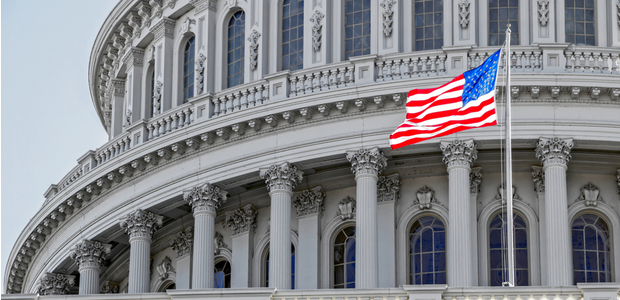Will Democrats revive the Office of Technology Assessment in 2019?
House Democrats have been backing a revival of the congressional tech consultancy in recent years. Now that they control the House, can the OTA make a comeback?

The Office of Technology Assessment could make a comeback in 2019.
From 1972 to 1995, the Congressional office provided scientific and technological advice to lawmakers, penning more than 750 studies and, at its peak, supporting 140 staffers with a budget exceeding $30 million in today's dollars.
When Newt Gingrich was Speaker of the House, the office became a casualty of Republican cost-cutting. In recent years, Democrats have tried to bring it back. Earlier this year, a bid led by Reps. Mark Takano (D-Calif.) and Bill Foster (D-Ill.) was thwarted by a 195-217 vote, with just 15 Republicans supporting the measure. But the OTA gained more support than the 2014 effort, which failed by a 164-248 margin.
What's changed? Many observers, including former Defense Secretary Ash Carter, think the dismal performance of lawmakers at 2018 hearings probing Facebook's use and abuse of profile data served as a wake-up call that Congress needs more in-house technical expertise.
Imagine a different outcome where several options mixing self-regulation by companies like Facebook and informed regulation by federal and state governments were analyzed, debated and prepared for a vote," Carter wrote in a Dec. 6 opinion essay in Politico.
Many OTA backers imagine they can get the votes for a revival of the office in some form in 2019.
Takano, who serves on the House Science, Space and Technology Committee, said he was "optimistic" about the chances next year, pointing out the "dire need for access to unbiased technology experts to move good and effective legislation forward."
Rep. Ted Lieu, a California Democrat who was just elected to leadership as the co-chairman of the Democratic Policy and Communications Committee, said he wants to bring back OTA. Lieu, who has a computer science degree, pointed to cybersecurity shortcomings in both the private and public sectors, aerospace and medicine as areas of Democratic priority -- and areas OTA will help inform lawmakers.
"I've always been a big proponent of bringing back the Office of Technology Assessment," Lieu said in an email. "It's increasingly imperative that lawmakers have reliable, thorough and objective technical advice on issues that we're legislating."
"OTA or an OTA-like thing is going to happen," said Daniel Schuman, policy director at Demand Progress.
But despite the growing support and a new Democratic majority in the House, there are still a lot of question marks around an OTA revival.
Because the authorizing statute for the office is still in effect, simply funding the office in the appropriations package "is certainly the most straightforward approach," Schuman said.
The measure sponsored by Takano and Foster requested $2.5 million in funding for the office, a figure Schuman said was "not enough" to do much beyond hiring a director and "start turning the engine on."
Future funding "depends on how much work do they want OTA to do and how do they want to model it," he said.
Zach Graves, head of policy at the Lincoln Network, agreed $2.5 million would not be enough, "particularly if you wanted to keep the same methodologies" as the old office, he said.
Will Democrats again target $2.5 million or try for more in the next Congress? That's up in the air, OTA watchers say, with the immediate focus being on securing support.
The Republican-controlled Senate is a big obstacle, Graves said. But there are other ways Congress could approach injecting tech capacity into its ranks.
One alternative emerging among conservatives is to increase resources to offices with technological focuses that already receive funding, like the Government Accountability Office's IT oversight arm.
"There is this sort of natural skepticism of expert bureaucracies and the optics of recreating a new federal agency," said Graves, who has also worked at R Street and Cato Institutes. "Republicans are going to be much naturally more favorable to doing this in GAO rather than OTA."
Sen. Ron Wyden (D-Ore.), who led this year's Senate-side push to revive OTA, isn't limiting the path for improving tech capacity in Congress just to OTA.
Keith Chu, Wyden's press spokesperson, said the senator will look at a range of options to bring tech expertise to Congress, "whether it's through reviving the OTA, giving GAO additional resources, or encouraging programs like TechCongress fellowships."
But boosting funding for GAO without bringing back an agency with OTA's mission comes with downsides, because the two have fundamentally distinct visions, said Schuman.
"GAO is an agency that has a waste, fraud and abuse mission -- that is the organizational culture approach, that is the way they think about things," he said. "OTA is often about imagining what's possible and not criticizing what currently exists."
"That doesn't mean it couldn't work," Schuman added. "It's just more of a deviation from" OTA's original mission.
If the Senate balks at bringing back the office, House Democrats could push a revival as a House-only measure.
"But no matter what you do, you still have to fund it," said Schuman. "Which makes me think it all comes back to appropriations."
NEXT STORY: GSA names new TTS lead





